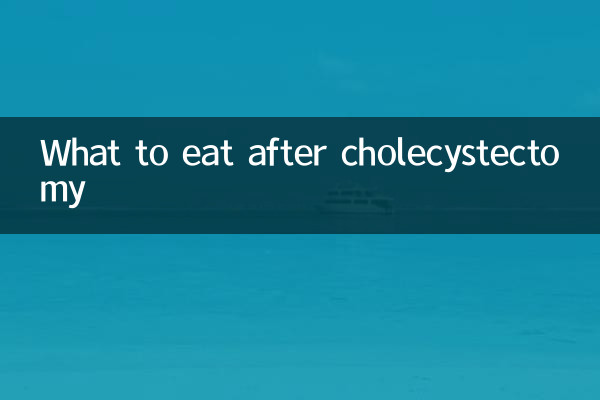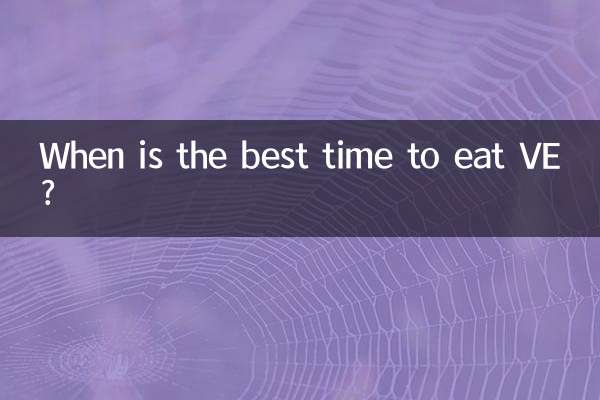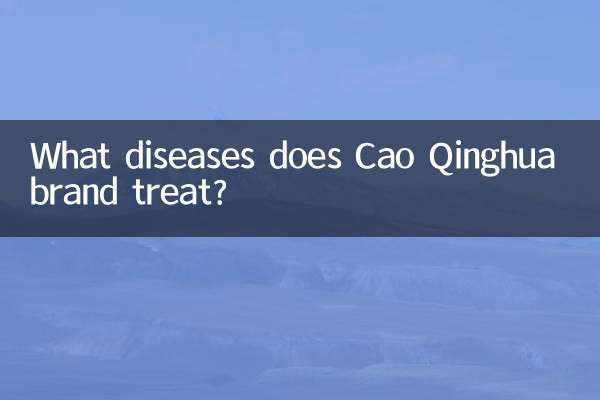What to eat after cholecystectomy: postoperative dietary guidelines and hot topics integrated
Recently, the topic of diet after cholecystectomy has sparked widespread discussion on major health forums and social media. Many patients are confused about how to adjust their diet after surgery. This article will combine the popular discussions on the Internet in the past 10 days to provide scientific dietary advice for cholecystectomy patients and organize relevant hot content.
1. Dietary principles after cholecystectomy

After cholecystectomy, bile enters the intestine directly and lacks the process of concentration and storage. Therefore, postoperative diet should follow the following principles:
| time stage | dietary advice | Things to note |
|---|---|---|
| 1-3 days after surgery | Liquid food (rice soup, lotus root starch) | Avoid fatty and spicy foods |
| 4-7 days after surgery | Semi-liquid food (porridge, rotten noodles) | Eat small and frequent meals, 5-6 times a day |
| 2 weeks after surgery | Gradually transition to a normal diet | Limit intake of high-fat foods |
| 1 month later | regular diet | Observe individual tolerance |
2. Food that has been the focus of recent hot discussions
According to the analysis of network data in the past 10 days, the following foods are the most popular in post-cholecystectomy diet discussions:
| food category | Reasons for recommendation | Internet discussion popularity |
|---|---|---|
| steamed egg | Easy to digest, high quality protein | ★★★★★ |
| oatmeal | Rich in soluble fiber | ★★★★☆ |
| steamed fish | low fat high protein | ★★★★☆ |
| banana | Supplement potassium | ★★★☆☆ |
| pumpkin | Promote digestion | ★★★☆☆ |
3. List of foods to avoid
In online discussions, many users shared their experiences of discomfort caused by eating inappropriate foods. The following foods require special attention:
| food category | Potential risks | Alternative suggestions |
|---|---|---|
| Fried food | increase digestive burden | Roast or steam instead |
| fat meat | May cause diarrhea | Choose lean meat |
| spicy food | Stimulate the digestive tract | Lightly seasoned |
| Full-fat dairy products | difficult to digest | Choose low-fat or fat-free |
| alcohol | Affect liver function | avoid completely |
4. Nutritional matching suggestions
According to recent online sharing by many nutrition experts, the ideal three meals a day after cholecystectomy should include:
•Breakfast:Oatmeal + steamed egg + banana
•Lunch:Rice + steamed fish + blanched vegetables
•Dinner:Millet porridge + steamed pumpkin + tofu
•Extra meals:Low-fat yogurt or fruit
5. Compilation of recent popular questions and answers
Based on the popular questions from major health platforms, the following questions have received the most attention:
1.Can I drink coffee after surgery?- It is recommended to avoid it within 1 month after surgery, and then try it in small amounts.
2.How long will it take to resume normal eating?- Individual differences vary greatly, and it usually takes 1-3 months.
3.Why is it easy to have diarrhea after surgery?- Caused by changes in bile regulation, usually improves in 6-12 months.
4.What vitamins need to be supplemented?- Focus on the supplementation of fat-soluble vitamins A, D, E, and K.
6. Long-term dietary management suggestions
According to a number of recently published professional articles, patients undergoing cholecystectomy should pay attention to the following long-term diet:
• Maintain a regular diet and avoid overeating
• Control total fat intake without completely excluding healthy fats
• Increase dietary fiber intake to promote intestinal health
• Chew food thoroughly to reduce digestive burden
• Keep a food diary to identify food intolerances
Dietary adjustment after cholecystectomy is a gradual process, and patients should gradually try different foods according to their own conditions. In recent online discussions, many rehabilitators shared their adaptation experiences and suggested that new surgery patients refer to similar cases, but also pay attention to individual differences. If you have persistent discomfort, you should consult your doctor promptly.

check the details

check the details